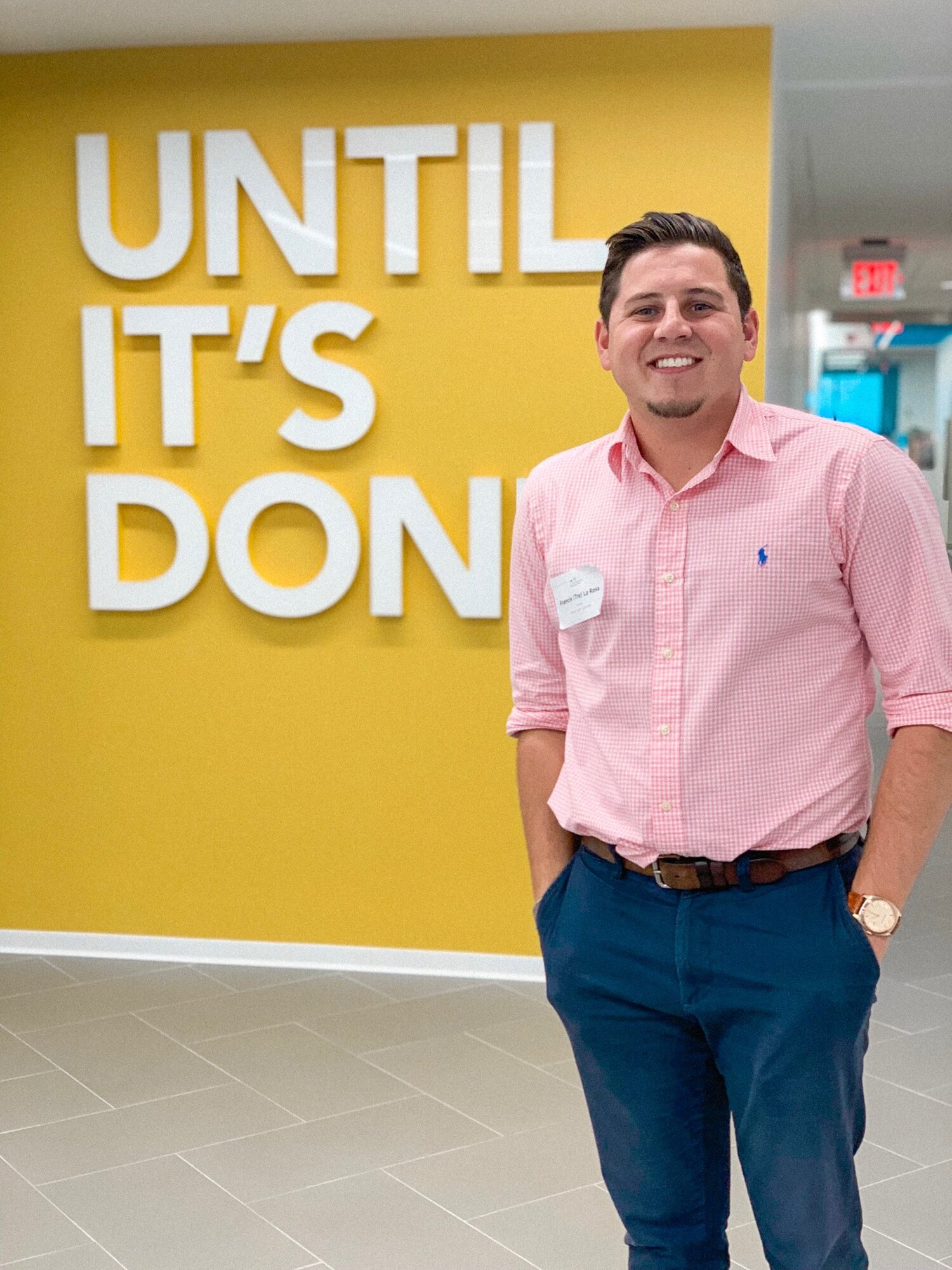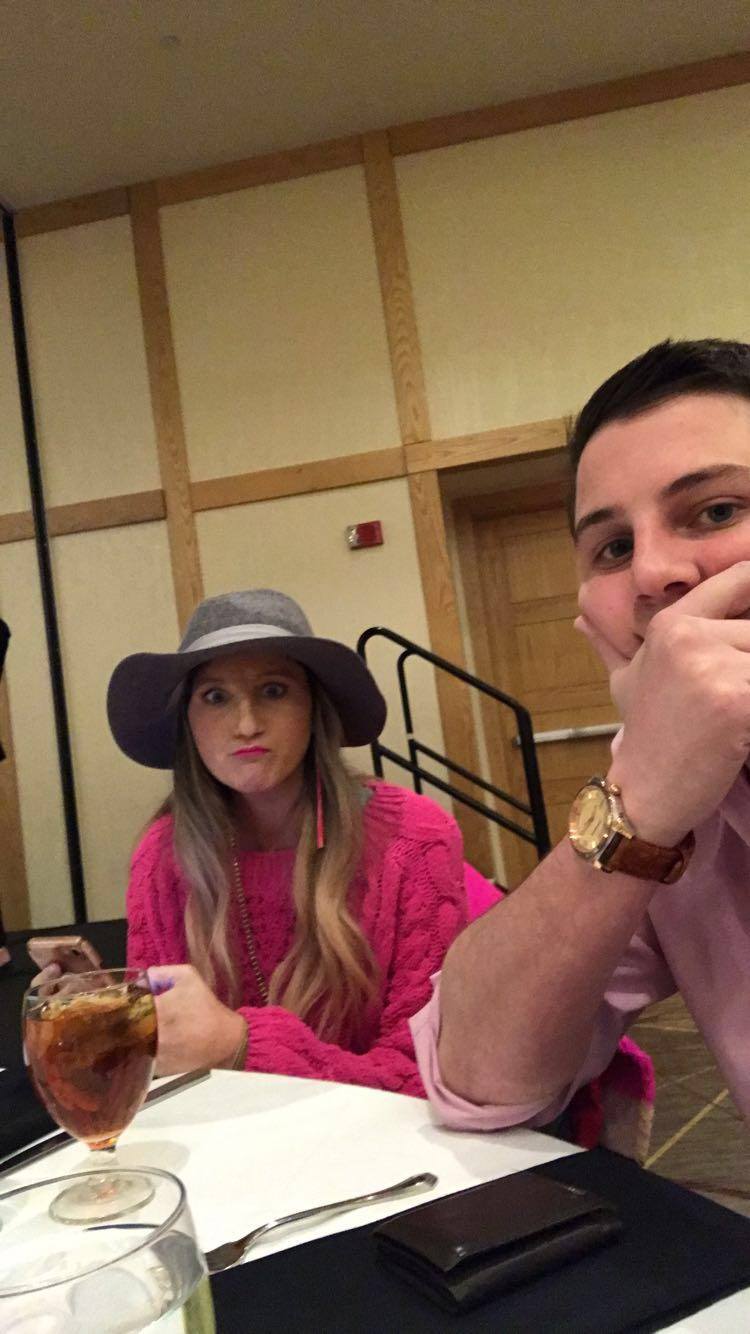They say the second year is harder. The first year, every week’s a milestone. You’re constantly bumping into people you haven’t seen in years and parroting the same line over and over again, carefully choosing your words so as to avoid making anybody feel uncomfortable or a bit too intimate. You choose not to say that you’re drowning, that every night you’re going to bed hoping to wake from this nightmare or be released from it altogether, you’re smiling in public, you’re telling strangers you’re “hanging in there” — outwardly projecting a facade of okay-ness, internally sobbing and screaming — so you don’t break the social contract whenever people casually ask how you are.
The second year, the chasm of a gone loved one is your normal. You begin to think that life should be returning to a new baseline, absent-mindedly dismissing the trauma that consumed a year of your life. It’s harder to verbalize the struggles; how do you convey to somebody that you sometimes forget that your sister is gone? dead? (the word “dead” just feels so insensitive, but “gone” feels so…light) even though you’re reminded of it daily by her handwriting etched into your forearm? People come into your life that never knew you when you felt whole or that only saw the aftermath of how your loved one’s death affected you. Their only semblance of who that person was is through your anguish and the way you carry on that person’s legacy. Your loved one’s legacy is no longer their own; it becomes a part of your story and the way you choose to tell their life story.
Life becomes subsumed by the same ol’ bullshit that it was before your life was ripped in two halves. You start to become stressed with work stuff that doesn’t matter or being late to a meeting that also doesn’t matter or irritated that somebody made a rude comment on Facebook. Life does reach a new baseline. I guess life is always reaching a new baseline, after roadblocks and before.
When my sister was alive, I didn’t live in the moment. Of course I told myself I did — I started exploring mindfulness during a particularly rough few months after her first transplant in 2016 — and I wrote about it, too. But where was that mindfulness when I was spending time with my sister? It went out the door. I was endlessly worried about when her next bout with rejection would begin, badgering her about her treatments and “understanding her treatment plan.” Instead of being her brother, I sought out the role of expert in her care. But I didn’t belong in this role. Our relationship shouldn’t have been predicated on her health; it should have been predicated on the simple truth that she was my sister first and foremost, before she was a patient, before her CF, before any future trouble. I told myself it was out of love that I worried about her so much and was so tough on her. It was, to some degree. But really, it was out of fear and powerlessness. No matter what, I couldn’t accept that Lyss’s body wasn’t like mine. It never was, from birth until death. She was born fatally ill; I was a healthy baby. She struggled with weight; I have, too, but in the opposite direction, clearly, since I still feel upset thinking about the girl who called me fat in second grade. I respond well to antibiotics; she just didn’t. I wanted the opposite to be true, I wanted her to be able to have my life, to go to college, to be “bigger” than her CF, to work full-time, to hear people say “You don’t look sick!” instead of “You’re so thin!”
And so I blamed myself. Survivor’s guilt is no joke. In the aftermath of my sister’s transplants, hospital stays, and death, dozens of times I have found myself overcome with a nauseating feeling that I didn’t deserve the life I have and neither did she. I deserved to struggle more, she deserved at least one span of six months of peace. What does “deserve” mean, anyway? Was I a saint in my past life, my sister a sinner? It would be easier that way. At least it’d give some explanation for our antithetical experiences in life.
She should be here today celebrating her 31st birthday. I shouldn’t have to be thankful that she’s not struggling to breathe or worrying that she’s going to reject her lungs. I should be texting her and giving her shit and telling her to have a good day at work. She should be planning a future for her kids and family and talking about where she’s thinking about moving or what business she’s going to start. In another timeline, maybe she’s doing these very things.
I’ve been focusing on my accomplishments lately. I want there to be a world where it’s more likely for us to die by incident than by CF or rejection. Ideally, I want there to be a world where CF is no more and lung transplants are a by-product of a time long gone. I’ve invested myself in my writing, in public speaking, in advocacy, and in my work, convinced that — maybe someday, eventually — I’ll be able to get to the point where my accomplishments fill the aching hole in my heart.
This is the same bullshit I used to tell myself when my sister was alive. I prided myself on being realistic about Alyssa’s likely prognosis. If I were truly realistic, I would’ve believed that prognosis — a few years after each transplant — and learned to accept that and just genuinely appreciate my time with her. I pushed it off, time and time again, to the next day.
If our lives are dependent on our accomplishments, we will never stop. We will never feel accomplished and we will never appreciate what we have done. I believed that if my sister were healthy, or that if at the very least she got a stint of a few healthy months, I would’ve been able to take a step back, stop being so obsessive about her health, and appreciate our lives together. I always looked toward the future instead of sitting there in the moment.
When we’re stuck in the endless cycle of life, it can feel like life stops becoming a series of interconnected moments flowing into the next and rather becomes segmented bullet points, punctuated by different events. It’s in this paradigm that we get caught up and forget what life is about. When I find myself moving too quickly and getting too anxious, I try to slow down, glance at my forearm, read my sister’s message, and reflect on how I wish I had spent my time with her. I wish I had learned to appreciate the journey, instead of appreciating the highs and despising the lows.
In the time since she died, I have heard from literally hundreds of people about how my sister influenced their lives. I feel sorry for my sister that she didn’t know that when she was here. Maybe if she had, she would’ve been at peace. I can only hope she’s at peace now.
Happy 31st birthday, Lyss. We miss you more every single day.














